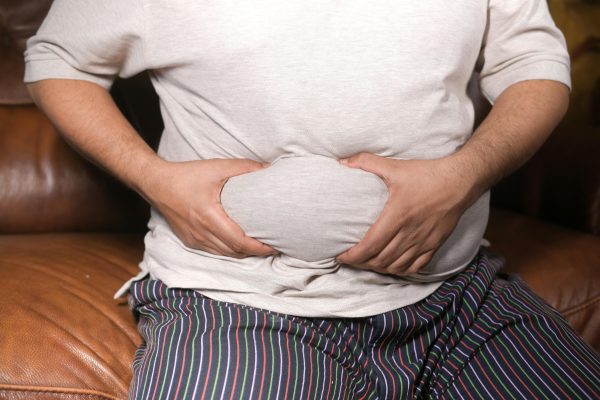In today’s society, alcohol consumption is a prevalent social activity. However, its effects on health, including hormonal balance, have long been debated. One such hormone under scrutiny is testosterone. This article delves into the question: Does alcohol lower testosterone?
Alcohol’s impact on the body is multifaceted, and understanding its effects on testosterone levels is crucial for overall health. Testosterone, often associated with masculinity, plays a vital role in various bodily functions, including muscle mass, bone density, and libido. Hence, any disruption in its levels can have significant consequences.
- What is Testosterone?
- Effects of Alcohol on Testosterone
- Short-Term Effects
- Long-Term Effects
- Moderation and Lifestyle Factors
- Alcohol and Sexual Health
- Other Health Implications
- Tips for Maintaining Testosterone
- FAQs: Alcohol Consumption and Testosterone Levels
- Question: Does Drinking Alcohol Lower Testosterone Levels?
- Question: Can Moderate Alcohol Consumption Affect Testosterone Levels?
- Question: Is There a Safe Limit for Alcohol Consumption to Maintain Testosterone Levels?
- Question: Can Quitting Alcohol Reverse the Effects of Testosterone Suppression?
- Question: How Soon After Alcohol Consumption Can Testosterone Levels Return to Normal?
- Question: Are There Any Nutritional Strategies to Mitigate the Effects of Alcohol on Testosterone?
- Conclusion
What is Testosterone?
Testosterone is a hormone primarily produced in the testes in men and ovaries in women, albeit in smaller amounts. It belongs to a class of hormones known as androgens and is responsible for the development of male reproductive tissues and secondary sexual characteristics.
Effects of Alcohol on Testosterone
Research suggests a correlation between alcohol consumption and decreased testosterone levels. Excessive drinking can disrupt the delicate hormonal balance, leading to reduced testosterone production.
Impact of Alcohol on Testosterone Levels
Alcohol’s impact on testosterone levels is a complex interplay that involves various physiological mechanisms. Understanding these effects in more detail is crucial for comprehending the implications of alcohol consumption on overall health.
Hormonal Disruption:
Alcohol disrupts the delicate balance of hormones in the body, including testosterone. Chronic alcohol consumption can interfere with the hypothalamus-pituitary-gonadal (HPG) axis, the regulatory system responsible for testosterone production. This disruption occurs primarily through the suppression of luteinizing hormone (LH) secretion from the pituitary gland, which subsequently impairs testosterone synthesis in the testes.
Metabolic Changes:
Moreover, alcohol metabolism can also impact testosterone levels. Ethanol, the active ingredient in alcoholic beverages, undergoes oxidation in the liver, leading to the production of acetaldehyde. This metabolite can inhibit the enzymes responsible for testosterone synthesis, further contributing to decreased testosterone levels.
Increased Estrogen Levels:
Furthermore, alcohol consumption can lead to elevated estrogen levels, which can indirectly affect testosterone production. Alcohol-induced liver damage impairs estrogen metabolism, leading to higher circulating estrogen levels. Elevated estrogen levels can inhibit the production of testosterone by negatively regulating the HPG axis.
Oxidative Stress:
Additionally, alcohol consumption contributes to oxidative stress in the body, which can damage Leydig cells in the testes responsible for testosterone production. Oxidative stress disrupts cellular function and can impair testosterone synthesis, further exacerbating the hormonal imbalance caused by alcohol.
Disruption of Sleep Patterns:
Alcohol consumption also disrupts sleep patterns, which can impact testosterone levels. Adequate sleep is crucial for maintaining healthy testosterone levels, as testosterone is primarily produced during deep sleep stages. Disrupted sleep can lead to decreased testosterone production, exacerbating the effects of alcohol on hormonal balance.
The Sleep-Testosterone Connection: How Getting Good Zzz’s Boosts Your T-Levels
Psychological Factors:
Moreover, the psychological effects of alcohol consumption, such as stress and depression, can also impact testosterone levels. Chronic stress and mental health disorders associated with alcohol abuse can dysregulate the HPG axis and lead to decreased testosterone production.
The effects of alcohol on testosterone levels are multifaceted and involve hormonal, metabolic, and physiological mechanisms. Chronic alcohol consumption can disrupt the delicate balance of hormones in the body, leading to decreased testosterone production and potentially adverse health outcomes. Understanding these effects is essential for promoting overall health and well-being.
Mechanisms Behind Testosterone
Alcohol interferes with the endocrine system, particularly the hypothalamus-pituitary-gonadal (HPG) axis, which regulates testosterone production. Chronic alcohol consumption can suppress the release of luteinizing hormone (LH) from the pituitary gland, thereby inhibiting testosterone synthesis in the testes.
Elevate Your Transformation: 13 Male Testosterone-Boosting Habits for Growth
Studies and Research Findings
Numerous studies have investigated the relationship between alcohol and testosterone levels. One study published in the Journal of Clinical Endocrinology & Metabolism found that acute alcohol consumption led to a significant decrease in testosterone levels in men.
Short-Term Effects
The immediate impact of alcohol consumption on testosterone levels is notable. Shortly after drinking, testosterone levels can experience a rapid decline. This acute suppression of testosterone may persist for several hours following alcohol intake. The short-term effects also include alterations in hormone secretion patterns, particularly the inhibition of luteinizing hormone (LH) release from the pituitary gland. These temporary fluctuations in testosterone levels can affect mood, energy levels, and sexual function.
Long-Term Effects
Prolonged and excessive alcohol consumption can have more profound and lasting effects on testosterone levels. Chronic alcohol abuse is associated with a condition known as hypogonadism, characterized by inadequate testosterone production. Over time, sustained alcohol intake can lead to structural changes in the testes and impair the function of Leydig cells responsible for testosterone synthesis. The long-term consequences of alcohol-induced hypogonadism may include decreased muscle mass, increased fat deposition, decreased bone density, and sexual dysfunction. Addressing these long-term effects often requires comprehensive lifestyle changes and medical intervention.
Moderation and Lifestyle Factors
While moderate alcohol consumption may not significantly impact testosterone levels, excessive drinking can disrupt hormonal balance. Adopting a healthy lifestyle, including regular exercise and a balanced diet, can help mitigate the negative effects of alcohol on testosterone.
Kickstart Your Day: Morning Rituals to Boost Testosterone Levels Naturally
Alcohol and Sexual Health
Alcohol’s impact on testosterone levels can also influence sexual health. Low testosterone levels may contribute to erectile dysfunction and decreased libido in men, affecting sexual performance and satisfaction.
Other Health Implications
Apart from its effects on sexual health, altered testosterone levels due to alcohol consumption can have broader health implications. These may include reduced muscle mass, increased fat deposition, and decreased bone density.
Tips for Maintaining Testosterone
Maintaining healthy testosterone levels while consuming alcohol involves moderation and lifestyle adjustments. Ensuring adequate sleep, managing stress levels, and avoiding excessive alcohol intake are essential for hormonal balance.
Beyond Masculinity: Exploring the Diverse Functions of Testosterone
FAQs: Alcohol Consumption and Testosterone Levels
Question: Does Drinking Alcohol Lower Testosterone Levels?
Yes, excessive alcohol consumption can lead to decreased testosterone levels by disrupting the endocrine system and inhibiting testosterone production.
Question: Can Moderate Alcohol Consumption Affect Testosterone Levels?
While moderate alcohol consumption may not significantly impact testosterone levels in the short term, chronic or excessive drinking can lead to hormonal imbalance over time.
Question: Is There a Safe Limit for Alcohol Consumption to Maintain Testosterone Levels?
There is no universally defined “safe” limit for alcohol consumption to maintain testosterone levels, as individual responses to alcohol can vary. However, moderation is key to minimizing its negative effects on hormonal balance.
Question: Can Quitting Alcohol Reverse the Effects of Testosterone Suppression?
Quitting alcohol and adopting a healthier lifestyle may help restore testosterone levels over time, but the extent of recovery can vary depending on factors such as duration and severity of alcohol abuse.
Question: How Soon After Alcohol Consumption Can Testosterone Levels Return to Normal?
The timeframe for testosterone levels to return to normal after alcohol consumption can vary depending on factors such as the amount consumed and individual metabolism. In some cases, it may take several hours to days for levels to stabilize.
Question: Are There Any Nutritional Strategies to Mitigate the Effects of Alcohol on Testosterone?
Consuming a balanced diet rich in essential nutrients such as zinc, vitamin D, and antioxidants can support overall hormonal health and may help mitigate the negative effects of alcohol on testosterone levels.





